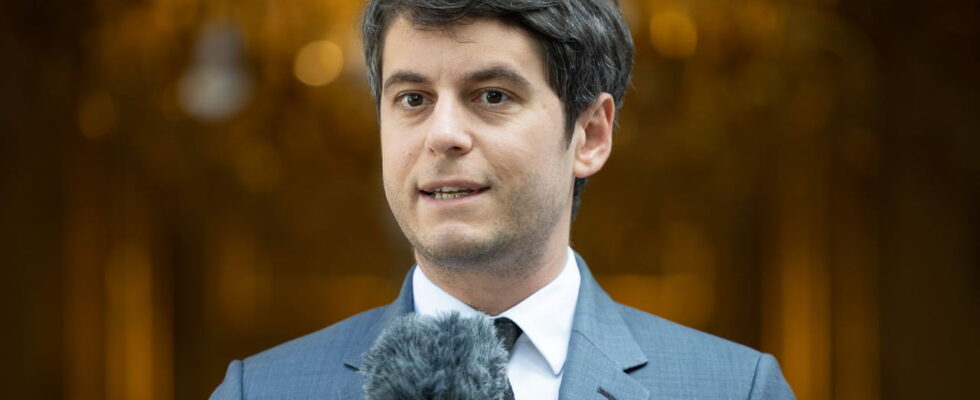Who will be the Prime Minister who succeeds Gabriel Attal? Several names are on the table, but Emmanuel Macron’s choice should depend on the scenario that is emerging in the National Assembly.
Who will be the next Prime Minister? The replacement of Gabriel Atta at Matignon will confirm the reconfiguration of French political life, and more precisely the transition from the presidentialist era that began with Emmanuel Macron’s five-year term to a parliamentary sequence. The deputies and the National Assembly will regain a central place in politics, because no government, in the current configuration, will be able to maintain itself without the support of the majority of elected representatives. However, no group can claim to take the vote in the hemicycle for granted, with three blocs having between 143 and 182 seats.
Without a majority, there will be no government. Or at least no stable government, which amounts to saying the same thing. A single motion of censure voted by 289 deputies, in this case two of the three powerful blocs of the National Assembly, is enough to overthrow the Prime Minister and his government. In other words, and whatever one hears, the composition of the new hemicycle requires that no group can govern alone, not even the New Popular Front which came out on top in the early legislative elections.
The parallel with the two years during which Macronie worked with a relative majority of only 250 deputies does not hold. The executive could count on the LR elected representatives who amended and voted on the texts in a majority of circumstances, or who refused to vote on a motion of censure when Article 49.3 was used. Which again amounts to saying the same thing.
A left-wing prime minister, a coalition prime minister or both?
The composition of the National Assembly – frozen for at least one year, with no dissolution taking place again before then – limits the possible scenarios concerning the future government: institutional deadlock in the absence of an alliance or the formation of a coalition between parliamentary groups or deputies who agree to lead the country on the basis of a government agreement.
The left could thus install itself at the head of the government by forming an alliance with other political forces, which would allow it to govern with fewer snags. So many possibilities that on paper seem easy to implement. But the National Assembly is already full of Gordian knots and untangling them will have to be done with tact: for the time being, the New Popular Front is opposed to a rapprochement with the presidential camp beyond the few members of the left wing; the bigwigs of Macronie refuse to join the union of the left unless it removes LFI from its fold; and the Republicans whose votes wink at the presidential camp are still reluctant to fill the missing places once again. Managing to find a program agreement uniting the left, Macronie and the right seems to be a complex equation.
Who could be appointed Prime Minister?
Despite the extension of his stay at Matignon by a few days, Gabriel Attal will have to leave the position of Prime Minister. Several political figures assure that they are ready to take over, but who could Emmanuel Macron choose? Probably representatives of the left, which is the majority in the Assembly. But the Assembly itself has not made its choice, simply excluding two people from the list of candidates for Matignon: Jean-Luc Mélenchon and François Hollande. The former, although still supported by the Insoumis, does not meet the consensus criterion desired by the New Popular Front. Same thing for the latter.
Not only must the future Prime Minister of the Left have a consensual profile, he must be able to “appease”, have the skills and experience necessary to govern, especially in a coalition, and align with the program of the New Popular Front according to Marine Tondelier. Several left-wing executives add that choosing a woman would be very opportune. And many female names are mentioned: Clémence Guetté (LFI), Clémentine Autain (LFI who distances herself from Jean-Luc Mélenchon), Mathilde Panot (LFI) and even Marine Tondelier (Ecologist) who was noticed in the last days of the campaign.
Other names are also circulating and prove that the war is raging internally: François Ruffin (LFI in rupture with Jean-Luc Mélenchon) Manuel Bompard (LFI), Olivier Faure (PS) and all the others who have put themselves forward but who seem to be in a less good position like Carole Delga (PS). Less politically marked and therefore less divisive profiles, capable of uniting majorities of projects could also emerge from the lot.
In the event of an even broader national coalition government, bringing together the left up to LR, the idea of appointing an “old sage” from the chamber, capable of finding a balance between the NFP, the Macronists and LR, is not excluded. A “technical” and apolitical personality could also, in this hypothesis, be raised.
When will the Prime Minister be appointed?
The left-wing union, still far from having made a choice, is continuing discussions to designate its future Prime Minister. But representatives of all left-wing parties announced on July 8, the day after the legislative elections, that a name would be presented “at the end of the week”. We would still have to wait a few more days before the Prime Minister is appointed, Emmanuel Macron being caught up in the July 14 celebrations after his return from the NATO summit in Washington. The wait could even last longer, due to the upcoming opening of the Olympic Games. The President of the Republic could seek an agreement from all parties to let the current team manage current affairs during the Olympic period.
